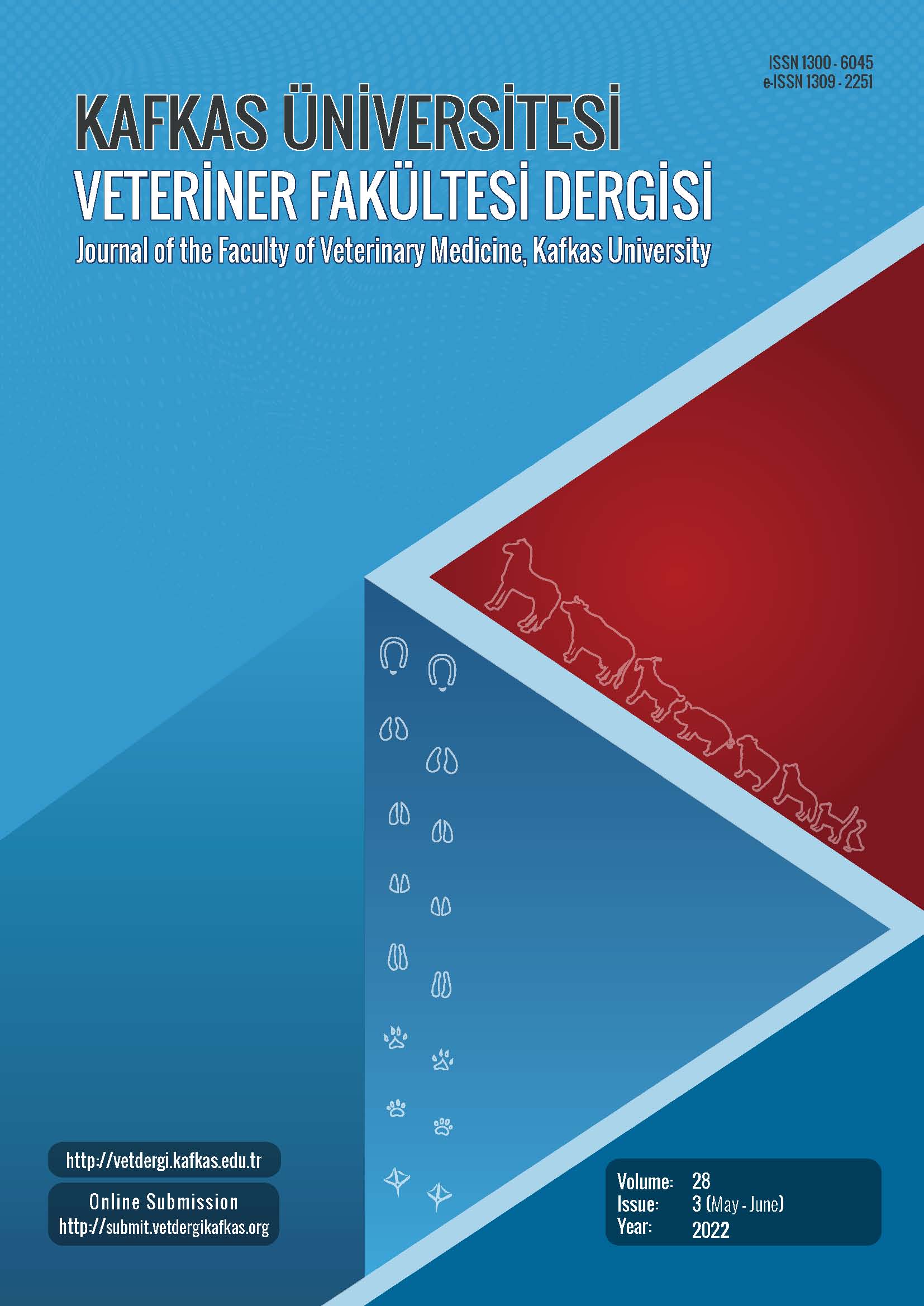
This journal is licensed under a Creative Commons Attribution-NonCommercial 4.0 International License
Kafkas Üniversitesi Veteriner Fakültesi Dergisi
2022 , Vol 28 , Issue 3
Effect of Antimicrobial Peptides from Fly Maggots on Immunity of Yellow-feathered Broilers
1Shihezi University, Collage of Animal Science & Technology, Xinjiang 832003, P. R. CHINA
DOI :
10.9775/kvfd.2021.26778
Th e aim of this experiment was to investigate the eff ect of dietary supplementation of fl y maggot antimicrobial peptides on immune
biochemical indicators, the eff ect of immune organ index, small intestinal bacteria and small intestinal mucosal cell count in yellow-feathered
broilers. Th ree hundred clinically healthy 1-day-old yellow-feathered broilers were randomly divided into 3 treatment groups, 10 replicates
in each group and 10 broilers in each replicate. Th e groups were called hereaft er as basal diet group (control group), basal diet + 100 mg/kg
fl y maggot antimicrobial peptide (AMPs) group, basal diet + 15% bacitracin zinc group. Th e test period was 42 d. Th e results showed that the
contents of albumin, IgG and IgM in the antimicrobial peptide group were significantly higher than those in the control group (P<0.05). Th e
spleen index and thymus index in the AMPs group were higher than those in the control group and the bacitracin zinc group (P<0.05). Th e
number of E. coli in each segment of the small intestine of broilers in the control group was significantly higher than that in the AMPs group
and the bacitracin zinc group (P<0.05). Th e number of goblet cells in each segment of the small intestine of broilers in the bacitracin zinc group
was higher than that in the AMPs group, but there was no significant diff erence (P>0.05). In conclusion, these findings that revealed maggot
antimicrobial peptides as dietary supplementation can improve the immunity of the yellow-feathered broilers.
Keywords :
Broilers, Immune system organ index, Immunobiochemical parameters, Intestinal bacteria, Maggot antimicrobial peptide










